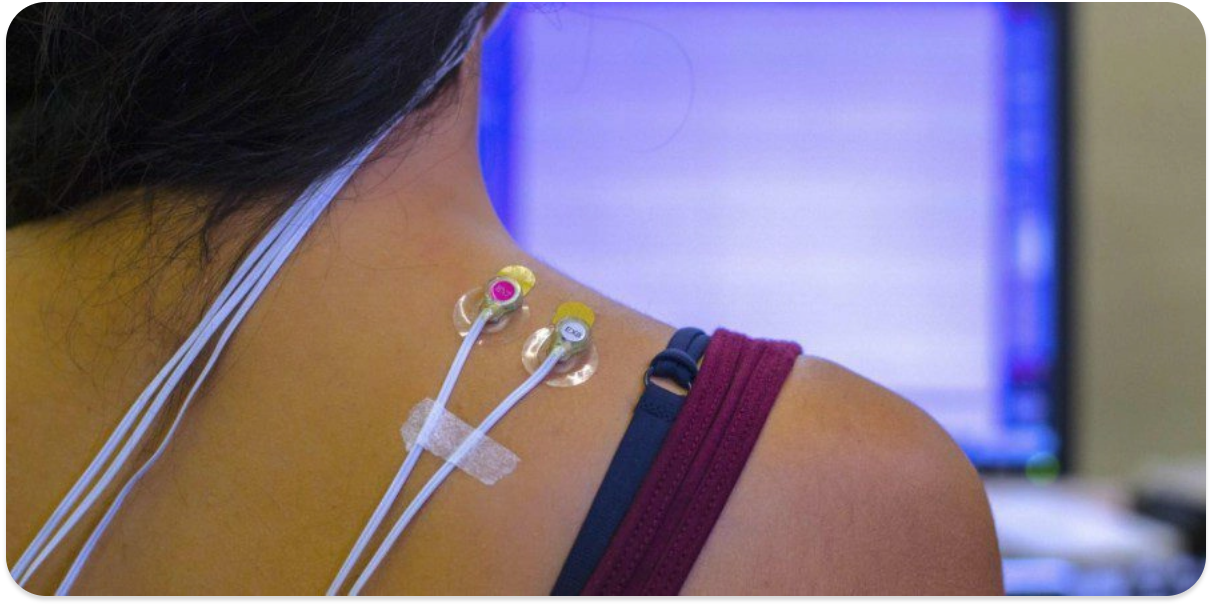As medical technology and academic studies advance, more medical fields have become deeply specialized, allowing patients to get priority treatment optimized for their hyper-specialized needs. The world of psychophysiology, biofeedback therapy, and neurofeedback medical practice are prime examples of this evolution of the medical field. In psychophysiology, doctors study the relationship between the mind and the body by examining physiological signals, such as when somebody blushes due to embarrassment or has a panic attack and starts sweating due to internalized anxiety.
This starts with academic and hands-on experience acquired before receiving a Ph.D. Psychophysiology is where you can find a career in various fields, including clinical psychophysiology, biofeedback therapy, neurofeedback therapy, and sports psychology. All four of these prioritize the mind and body wellness of their patients.
What Does a Clinical Psychophysiologist Treat?
After completing a Ph.D. Applied Psychophysiology: Clinical Psychophysiology Specialization, graduates will be prepared for a psychophysiological career in the clinical field, where they will examine a patient's biological and psychological needs to assess how best to treat them. By treating your patients with a biopsychosocial approach, you can help patients who are suffering from a variety of problems, such as:
- Chronic Pain
- Hypertension
- Trouble Sleeping
- Inability to Pay Attention for Long Periods of Time
Examining the patient outside of the traditional lens of Western medicine can offer new solutions and truly address the patient's needs. It can provide an alternative to medications and address the body as its own entity while ignoring the patient's psychological needs.
Licensure and Certification: Earning a Ph.D. in Psychophysiology alone will not allow one to practice as a clinical psychophysiologist. Graduates must complete additional licensure requirements and pass related licensure or certification examinations before entering practice. Licensure requirements vary from state to state.
What is the Role of a Biofeedback Therapist?
In a modern and complex world, many people feel that they are in a constant state of stress or anxiety, causes which can result in long-term underlying health issues, both physical and mental. The role of a biofeedback therapist is to help reduce these critical stress levels and make them manageable. This starts with a biofeedback session, which can range from 30 minutes to an hour on average. There are various types of biofeedback, such as using an electrocardiogram machine (ECG) to assess the heart, breathing biofeedback to determine the breathing rate, sweat gland activity to assess nervousness, and much more.
Biofeedback training for therapists is a great way to specialize in a particular field that can do wonders for patients. It gives them a tangible understanding of their symptoms and offers a viable solution to reduce their physical and mental health problems. Those therapists or mental health workers looking to expand their skill set would be interested in the Ph.D. Applied Psychophysiology: Specialization in Optimal Functioning, where biofeedback therapists start a rewarding career in optimal functioning.
Licensure and Certification: Earning a Ph.D. in Psychophysiology alone will not allow one to practice as a biofeedback therapist. Graduates must complete additional licensure requirements and pass related licensure or certification examinations before entering practice. Licensure requirements vary from state to state.
What is the Role of a Neurofeedback Therapist?
Like biofeedback therapy, a neurofeedback therapist assesses the brain waves of patients using non-invasive treatments. The goal of neurofeedback therapy is to offer an alternative to medications used for treating neurodevelopmental disorders such as ADHD without a dependency on medications and behavioral therapy.
Some studies have shown that neurofeedback is associated with significant improvements in people who have ADHD by prioritizing long-term solutions rather than using medications as a short-term solution. By increasing focus, grades, and parental consent from children’s behavior, neurofeedback therapy has helped to reduce hyperactivity.
In the Clinical Psychophysiology specialization, neurofeedback training is offered to explore integrative medical strategies and clinical skills.
Licensure and Certification: Earning a Ph.D. in Psychophysiology alone will not allow one to practice as a neurofeedback therapist. Additional licensure requirements for becoming a neurofeedback therapist, such as certification examinations before entering practice, may be required, varying from state to state.
What is the Role of a Sports Psychologist?
Inside the world of sports medicine, a psychophysiology career can be found to help athletes maximize their talents both physically and mentally. A sports psychologist is a type of wellness coach who helps them to prioritize their potential. Studies have shown that sports psychology may have an impact on improving the performance of athletes. During their day-to-day activities, a sports psychologist will walk athletes through their fears and anxieties, recover from injury, and help them develop as individuals and team members.
Teams of all ages can benefit from having a sports psychologist who is constantly improving their skills. The mental-physical connection a sports therapist emphasizes can help an athlete look at their connection with the game and their teammates with a whole new perspective, considering leadership, behavioral patterns, team chemistry, and individual personalities.
How to Start an Exciting Career in Specialized Psychology?
A psychophysiology career starts with a solid academic foundation on which you can continue to develop your skills and knowledge on how to improve the lives of others. Saybrook’s Ph.D. in Applied Psychophysiology focuses on the natural integration of the mind and the body to create a nuanced understanding of how the medical field examines patients and their needs. If you wish to become a part of this fascinating field of psychology, reach out and learn more today.
Find Out More
Recent Posts






























